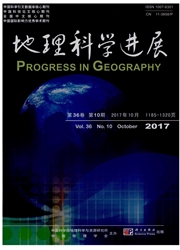

 中文摘要:
中文摘要:
职住空间伴随着城市的发展演变产生分离现象,引起国内外学者广泛的研究兴趣,通过实证研究和因素分析已经取得丰富的研究成果。本文试图从信息技术发展视角入手,分析其对城市职住分离的影响。本文以南京市为例,通过入户调查获取477份有效问卷调查数据,使用有序多分类Logistic回归模型研究分析。本文提出3个理论假设,通过实证分析得到部分验证:①职业类型对职住分离的影响仅体现在服务业,当仅考虑居民社会经济属性时,从事服务业居民承担的职住分离程度更小;②从居民信息化程度来看,居民的手机上网流量越大、家庭网络时长越长,则承担更大程度的职住分离,但这种正相关较弱,而手机个人拥有数和便携式电脑家庭拥有数与城市职住分离没有相关性;③从个人属性来看,个人月收入对城市职住分离的正相关影响最大,性别、年龄则没有相关性。
 英文摘要:
英文摘要:
Employment and residential space is an integrated part of urban space. It is also becoming the focus of urban geography. The influence of information and communication technology, which has permeated into dif- ferent aspects of residential production and living, is beyond the traditional influence in terms of work-residence separation, which arouses broad concern from home and abroad. Through empirical research and factor analysis great achievements have been made. This paper, taking Nanjing, a higher level of information and economy city as an example, conducts a household survey. In the survey, two indicators were selected: residential socio-eco- nomic attributes and residential information level, followed by eight subdivided indicators: gender, age, type of occupation, personal monthly income, the number of mobile phone owned by individuals, the number of fami- ly-owned portable computer, mobile internet traffic, and the length of home network. This paper, from ICT de- velopment perspective, aims to analyze the influence of home-work separation. The paper has obtained 477 val- id questionnaires survey data and built an ordered multinomial logistic regression model. The paper puts forward three theoretical assumptions, which have been partially validated through empirical analysis. First, taking into account only the residential socio-economic attributes, residents engaged in service industry are negatively corre- lated to work-residence separation, while residents engaged in manufacturing industry have no relevance. Sec- ond, mobile internet traffic and the length of home network has significant, but weaker positive relevance, but the number of mobile phones owned by individuals and the number of family-owned portable computers have no correlation with work-residence separation. Third, personal monthly income has the biggest positive rele- vance, while gender and age has no correlation with work-residence separation. In the context of information and communication technologies, the research on work-reside
 同期刊论文项目
同期刊论文项目
 同项目期刊论文
同项目期刊论文
 期刊信息
期刊信息
